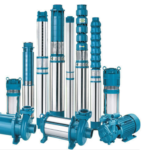
Capitalist countries are countries that practice a free market economy. It is an economic system in which private businesses control and regulate production factors like capital goods, labor, natural resources, and entrepreneurship.
This means that people control the economy, not the government. The government barely meddles with production or prices. This shows that value is based on supply and demand and the relationship between the producer and the consumer.
Capitalism is doing well in a lot of places around the world. Most people think that hard work alone can create opportunities and that economic freedom gives people the power to work, produce, consume, own, trade, and invest based on their preferences.
Socialism and communism are not the same as capitalism. In socialism and communism, the government has a lot of control over the economy. Most countries do not practice a fully capitalist economy but a mixed economy.
But in this article, we will focus on countries with a free market (capitalist) economy. So first, let’s look at the features of a capitalist economy.
Features Of A Capitalist Economy
1. Profit Motive: One of the most important things that drives a capitalist economy is the desire to make money. In this system, all companies want to make and sell products to consumers to make as much money as possible.
2. Private Property: Owning private property is one of the most important parts of capitalism. People or businesses can own private things like factories, machines, and equipment.
3. Price Mechanism: In this system, the level of production and the prices of goods are set by how much people want and need them on the market. The government has no role in this.
4. Freedom of business: Individuals can make economic decisions without anyone else getting in the way. This is true for both consumers and people who make things.
5. Consumer sovereignty: In this type of economic system, the needs of the consumer control the market. It tells companies how much they can make, but it’s up to the consumer to decide which products to buy.
6. Interference from the government: In this economy, the government doesn’t get in the way of how business is done daily. Both buyers and sellers are free to choose what they want to do with a product or service.
7. Freedom of ownership: This system encourages a person can own as much property as he wants and use it however he wants. By right of inheritance, the same property will go to his heirs after he dies.
8. Flexibility in the job market: In a capitalist economy, people can be hired and fired in various ways.
9. Free trade: In this economic system, low tariff barriers make it easier for countries to trade with each other.
Let’s see capitalism’s advantages and disadvantages in the next section.
Advantages of A Capitalist Economy
This type of economy has its advantages. Let’s quickly see the advantages of a capitalist economy.
- Allocation of resources:
Capitalism ensures that resources are spread out based on what people want because companies don’t get ahead or get paid for making things people don’t want.
- Improves standard of living:
Capitalism improves the standard of living because there are usually more goods on the market, which leads to more competition and lower prices. This makes it possible for people to buy the goods.
Innovation:
Capitalism encourages competition and is owned by different people. As a result, entrepreneurs often develop new ideas to stay ahead of their competitors. This makes it possible to make high-quality products.
- Increase in the number of industries:
People say that since capitalism flourishes because of the profit motive, this motive gives many people a reason to start their businesses, increasing production and strengthening the economy.
Disadvantages Of A Capitalist Economy
Everything that has an advantage will most likely have a disadvantage. A capitalist economy has its drawbacks. They are as follows:
- Pollution:
In a capitalist country, the means of production are owned by individuals, and people usually want to make a lot of money. Therefore, companies often don’t care about how their bad actions, like polluting the air, water, or land, affect the general public because their main goal is to make money.
- Waste of resources:
There is often a lot of waste because producers compete with each other for no reason in a capitalist economy.
- Monopoly:
When people own property and the means of production, they have the power to monopolize, which could lead to the exploitation of the masses by charging more for lower-quality goods.
- Inequality:
Capitalism makes society unequal because the rich get richer, and the poor get poorer. So, naturally, this leads to oppression and resentment.
- Coordination problems:
Most of the time, manufacturers and consumers don’t work together in a capitalist system. It is left up to the market, and the way prices work, which leads to inflation and deflation.
See also: 10 Safest Countries In The World With The Lowest Crime Rate
Top 9 Capitalist Countries
These countries listed here have a capitalist economy. That means they have a free market economy.
1. Singapore

With a score of 84.4, Singapore has the freest economy in the 2022 Index. Singapore’s highly developed capitalist economy owes a lot of its success to its business environment, which is very open and free of corruption, as well as to its wise monetary and fiscal policies and clear legal system.
Strong trade freedom and well-protected property rights encourage entrepreneurship and new ideas. Moreover, the rule of law is supported by a high level of openness and accountability from the government.
2. Switzerland

With a score of 84.2, Switzerland’s economy is the second most free in the 2022 Index.
In the last five years, Switzerland’s economy grew stronger in 2017 and 2018, slowed down in 2019, and went into the red in 2020. In 2021, growth began again. Strong economic freedom has been going on for the past five years.
Switzerland’s overall economic freedom has increased by 2.7 points since 2017, thanks to higher scores for the rule of law. As a result, it is now firmly among the capitalist countries and only 0.2 points behind Singapore, which is in first place.
Switzerland is a great place to invest, but cutting taxes and government spending could make it even better.
3. Ireland

With a score of 82.0, Ireland’s economy is the third capitalist country in the 2022 Index.
Ireland has been a good example for countries that want more economic freedom, especially in the last five years.
Ireland’s overall economic freedom has increased by 5.3 points since 2017, thanks to big gains in the rule of law and financial health categories. However, the country could go even higher if financial and labor freedom were freer.
4. New Zealand

New Zealand is ranked the 4th country with a free market economy in the world. In 2017 and 2018, New Zealand’s economy grew quickly. However, in 2019, it started to slow down, and in 2020, it started to dwindle due to Covid 19.
New Zealand’s overall economic freedom has dropped by 3.1 points since 2017, but it is still among the top capitalist countries.
This is because the country’s government and courts are more honest and fair. As a result, most of the country’s indicators are very strong.
5. Luxembourg

With an economic freedom score of 80.6, Luxembourg is the 5th capitalist country in the 2022 Index.
The economy of Luxembourg was growing about five years ago. It slowed down in 2019 and 2020, then started growing again in 2021. But economic freedom was still strong during those years.
With the increase in business freedom and the rule of law outweighing decreases in monetary and trade freedom, Luxembourg has seen an impressive 4.7-point overall increase in economic freedom since 2017. As a result, there is a lot of freedom to make investments, and the budget is in good shape.
6. Taiwan

Taiwan is the 6th capitalist country, with a score of 80.1. It is one of the few places in the world where the economy has grown steadily over the last five years.
Taiwan’s overall economic freedom has grown by 3.6 points since 2017, thanks to improvements in the courts’ effectiveness and the labor market’s freedom.
If business freedom and financial freedom got even better, economic freedom would go up even more.
7. Estonia

With a score of 80 out of 100, Estonia is the 7th capitalist country. However, Estonia’s impressive history of strong economic freedom has paid off this year. Estonia’s overall economic freedom has gone up by 0.9 points since 2017.
This is due to strong gains in scores for business freedom and the rule of law. The score for government spending is the only thing that stands out as a big mistake in an otherwise great performance.
Most of the time, government policies don’t get in the way of foreign investment very much. This is because the modern financial sector has a good system for keeping an eye on things.
8. Netherlands

The Netherlands’ economy is the 8th capitalist economy in the 2022 Index. It has a score of 79.5, which puts it in eighth place.
The Netherlands has gained 3.7 points in economic freedom since 2017. This is thanks to higher scores for the rule of law and financial health.
The Netherlands has four more nontariff barriers that are unique to the country. First, there are no limits on who can invest from abroad, and most sectors are open. Second, entrepreneurship grows when banks have rules that make sense.
9. Finland

With a score of 78.3, Finland’s economy is the 9th country with a free market economy in the world. In 2020, Finland’s economy started to shake, but in 2021, it started to grow again. The economy has become freer over the past five years.
Finland’s rule of law property rights, judicial effectiveness, and government integrity scores have increased, which has helped its overall economic freedom score go up by 4.3 points since 2017.
The freedom of business, money, and trade is strong. In summary, government policies don’t get in the way of foreign investment all that much. The financial sector is very competitive and offers a wide range of services.
Conclusion
In this article, we have seen that capitalist countries practice a free market economy when people own the means of production and make money from them.
Capitalism gives people and businesses a reason to compete to make as much money as possible. As a result, people develop better ways to do things because they want to beat their competitors.
Capitalism encourages growth and entrepreneurship. I hope you find this article helpful when searching for capitalist countries.










